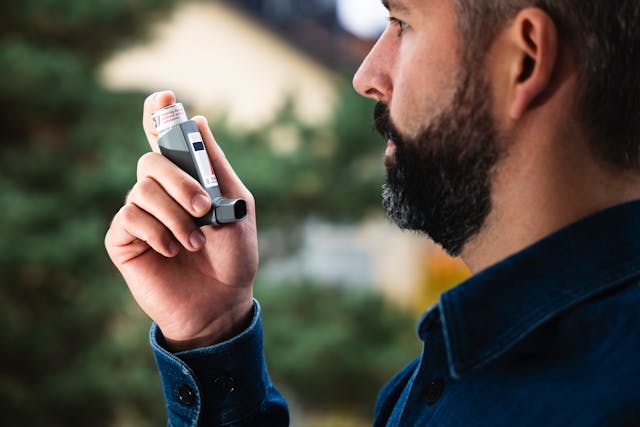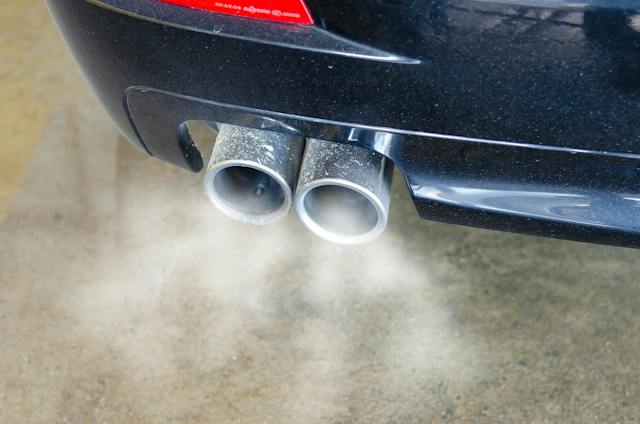Category Archives: asthma doctor nyc
Understanding the Link Between Allergies and Asthma
Understanding the link between allergies and asthma is crucial for managing both conditions effectively. These two often go hand-in-hand, especially in a busy urban environment like New York City, where allergens and pollutants are everywhere — from subway dust and rooftop pollen to pet dander in shared buildings. For many people, allergic reactions can trigger or worsen asthma symptoms, leading to breathing difficulties, reduced quality of life, and emergency room visits if not properly treated.

What Is the Connection Between Allergies and Asthma?
Allergic asthma is a type of asthma triggered by allergens — substances that cause allergic reactions. When someone with allergic asthma is exposed to an allergen like pollen or mold, their immune system reacts, causing inflammation in the airways. This inflammation leads to asthma symptoms such as:
- Shortness of breath
- Chest tightness
- Wheezing
- Persistent coughing
The connection between the two conditions lies in the immune system’s overreaction. For patients with both allergies and asthma, managing one often helps manage the other.
Common Allergy Triggers That Can Affect Asthma
Identifying and avoiding triggers is key to controlling allergic asthma. In NYC, environmental and indoor allergens are everywhere. Some of the most common include:
- Pollen: Tree, grass, and weed pollens peak during spring and fall.
- Dust Mites: Common in apartment buildings and older homes.
- Mold: Grows in damp areas like bathrooms, basements, and subways.
- Pet Dander: Even if you don’t own pets, shared spaces can harbor dander.
- Cockroach Droppings: A common trigger in densely populated cities.
Inhalation of these allergens can set off both allergy symptoms and an asthma attack, especially in individuals with allergic asthma.
Signs You May Have Allergic Asthma
If you’re already diagnosed with allergies or asthma, but you’re noticing cross-over symptoms, you may have allergic asthma. Watch for:
- Worsening of asthma symptoms during allergy season
- Asthma attacks after pet exposure
- Need for frequent rescue inhaler use in dusty or moldy environments
- Asthma triggered by pollen, smoke, or perfume
A consultation with a board-certified allergist can confirm the diagnosis and help you develop a targeted treatment plan.
Testing for Allergies and Asthma
To determine if your asthma is allergy-related, an allergist may recommend:
- Skin Prick Testing: Identifies sensitivities to common allergens.
- Blood Testing (IgE): Measures allergy-related antibodies.
- Spirometry: Assesses lung function and airflow restriction.
A combination of tests can provide a complete picture of what’s causing your symptoms — and how to treat them.
Treatment Options That Target Both Conditions
Managing allergies and asthma together often results in better outcomes. Effective treatments may include:
- Inhalers: Daily corticosteroids and rescue bronchodilators help manage asthma symptoms.
- Antihistamines: Reduce allergic reactions and nasal symptoms.
- Allergy Immunotherapy: Allergy shots or sublingual tablets retrain the immune system to reduce sensitivity.
- Environmental Control: Air purifiers, allergen-proof bedding, and mold remediation can reduce exposure.
Many patients with allergic asthma see long-term improvements when both allergies and asthma are addressed as part of the same treatment strategy.
Why Seeing an Allergist Matters
While general practitioners can treat asthma, an allergist has the specialized knowledge to identify allergy-asthma overlaps. By creating a personalized care plan, they can reduce your reliance on emergency medications and help you lead a more comfortable, symptom-free life — even during peak allergy season in NYC.
Get Expert Help for Allergies and Asthma in NYC
If you’re struggling with allergy-induced asthma or aren’t sure what’s triggering your symptoms, expert help is available. Schedule a consultation with Dr. Boyan Hadjiev to receive comprehensive allergy and asthma care designed around your needs.
Allergy, Asthma and Sinusitis P.C
Boyan Hadjiev, MD
30 East 40th Street
Suite 1200
New York, NY 10016
212-319-5282
Managing Asthma in NYC: A Guide to Breathing Easier
What are the best ways to go about managing asthma in NYC? Living in a big city comes with many benefits, but for those with asthma, urban life can also present unique challenges. From air pollution and seasonal allergens to stress and crowded spaces, city environments can trigger or worsen asthma symptoms. However, with the right management strategies, you can reduce flare-ups and maintain control over your condition.

Boyan Hadjiev, MD, widely known as “Dr. Sneeze,” is a top NYC allergist specializing in asthma care. In this guide, he shares expert insights on managing asthma effectively in an urban setting, so you can breathe easier and enjoy city life without constant worry.
Understanding Asthma: Causes and Symptoms
Asthma is a chronic respiratory condition that causes inflammation and narrowing of the airways, leading to symptoms such as:
- Wheezing: A high-pitched whistling sound when breathing.
- Shortness of Breath: Difficulty inhaling and exhaling properly.
- Coughing: Often worse at night or early in the morning.
- Chest Tightness: A feeling of pressure or discomfort in the chest.
Why Asthma Can Be Worse in a Big City
Living in a metropolitan area like New York City means daily exposure to a variety of asthma triggers. These can include:
- Air Pollution: Vehicle exhaust, industrial emissions, and airborne particulates can worsen asthma symptoms.
- Pollen and Seasonal Allergies: Trees, grass, and ragweed pollen are common triggers, especially in spring and fall.
- Indoor Allergens: Dust mites, pet dander, mold, and cockroach droppings can accumulate in apartments, offices, and public spaces.
- Weather Changes: Cold, dry air in the winter and high humidity in the summer can cause airway irritation.
- Stress and Anxiety: The fast pace of city life and high stress levels can exacerbate asthma symptoms.

Effective Strategies for Managing Asthma in a City Environment
1. Identifying and Avoiding Triggers
The first step to asthma management is recognizing your triggers and minimizing exposure. Some helpful strategies include:
- Checking the daily air quality index (AQI) and pollen count before heading outside.
- Using an air purifier with a HEPA filter at home to reduce airborne allergens.
- Keeping windows closed during high-pollution days and peak allergy seasons.
- Avoiding outdoor exercise near traffic-heavy areas to reduce inhalation of pollutants.
2. Using Medications Correctly
Asthma medications help keep symptoms under control. Your treatment plan may include:
- Quick-Relief Inhalers (Bronchodilators): Used for immediate relief during asthma attacks.
- Controller Medications: Long-term medications, such as inhaled corticosteroids, help prevent symptoms and flare-ups.
- Biologic Therapies: Advanced treatments for severe asthma that target specific immune responses.
Regular follow-ups with your allergist can ensure that your medication plan remains effective.
3. Creating an Asthma Action Plan
Work with Dr. Sneeze to develop a personalized asthma action plan. This plan should include:
- Your daily medication schedule.
- Early warning signs of an asthma attack and what steps to take.
- Emergency instructions in case of a severe attack.
4. Lifestyle Adjustments to Improve Asthma Control
Beyond medication, making simple lifestyle changes can significantly improve your asthma symptoms:
- Exercise Safely: Engage in low-impact activities like swimming, yoga, or indoor workouts during high-pollution days.
- Stay Hydrated: Drinking enough water can help keep airways clear and reduce mucus buildup.
- Manage Stress: Mindfulness, meditation, and deep breathing exercises can help reduce anxiety-related asthma attacks.
- Reduce Household Allergens: Wash bedding regularly, use hypoallergenic covers, and keep your living space clean.
Why See an Allergist for Asthma?
If asthma symptoms are interfering with your daily life, it’s important to see an allergist for specialized care. Dr. Sneeze offers:
- Comprehensive allergy and asthma testing.
- Customized treatment plans tailored to your lifestyle.
- Advanced asthma therapies, including biologic treatments and immunotherapy.
Managing Asthma in NYC: Contact NYC’s Leading Allergist
Don’t let asthma control your life. With the right care and strategies, you can breathe easier and enjoy everything NYC has to offer. Dr. Boyan Hadjiev, MD, “Dr. Sneeze,” is dedicated to helping asthma sufferers live symptom-free. Schedule an appointment today:
Allergy, Asthma and Sinusitis P.C
Boyan Hadjiev, MD
30 East 40th Street
Suite 1200
New York, NY 10016
212-319-5282
Take the first step toward better asthma control with expert guidance from NYC’s top allergist.
Asthma Management in the City: Expert Advice from a NYC Allergist
Dr. Boyan Hadjiev, an NYC allergist renowned as “Dr. Sneeze,” offers expert advice on asthma management in the city that never sleeps. Asthma, a chronic respiratory condition that affects millions of people worldwide, can be particularly challenging to manage in a bustling metropolis like New York City. With its unique blend of environmental factors and urban stressors, NYC residents with asthma need specialized guidance to breathe easier.

The Urban Asthma Challenge
 Asthma is characterized by inflammation and narrowing of the airways, leading to symptoms such as wheezing, shortness of breath, coughing, and chest tightness. Living in New York City can exacerbate these symptoms due to several factors:
Asthma is characterized by inflammation and narrowing of the airways, leading to symptoms such as wheezing, shortness of breath, coughing, and chest tightness. Living in New York City can exacerbate these symptoms due to several factors:
- Air Pollution: NYC’s high population density and traffic contribute to increased air pollution, which can trigger asthma symptoms.
- Allergens: The city’s diverse environment contains various allergens, including pollen, mold spores, dust mites, and cockroaches, all of which can worsen asthma.
- Stress: The fast-paced, high-stress lifestyle of NYC can also have a negative impact on asthma control, as stress can trigger asthma exacerbations.
Asthma Management Tips
To effectively manage asthma in the city, consider the following expert tips from Dr. Sneeze:
 1. Develop an Asthma Action Plan
1. Develop an Asthma Action Plan
Work with Dr. Sneeze to create a personalized asthma action plan. This plan will outline your daily asthma management routine, including medication use, peak flow measurements, and steps to take in case of an asthma attack.
2. Identify Triggers
Identifying and minimizing exposure to asthma triggers is crucial. Dr. Sneeze can help you pinpoint your specific triggers through allergy testing and recommend strategies to reduce your exposure.
3. Medication Management
Follow your prescribed asthma medication regimen diligently. This may include daily controller medications and quick-relief medications for acute symptoms. Dr. Sneeze will tailor your medication plan to your individual needs.
4. Regular Check-ups
Schedule regular follow-up appointments with Dr. Sneeze to monitor your asthma control and make any necessary adjustments to your treatment plan. Asthma management is an ongoing process, and consistent care is vital.
5. Allergen Avoidance
Take steps to minimize exposure to common asthma triggers, such as pollen, dust, and pet dander:
- Use high-efficiency particulate air (HEPA) filters in your home.
- Keep windows closed during high pollen seasons.
- Use allergen-proof covers for pillows and mattresses.
- Address any water leaks or mold issues promptly.
6. Stress Management
Stress reduction techniques, such as mindfulness meditation, yoga, or deep breathing exercises, can help improve asthma control by reducing stress-related exacerbations.
Contact NYC’s Expert Allergist
 For comprehensive asthma management and expert advice tailored to your unique needs, reach out to Dr. Boyan Hadjiev, known as “Dr. Sneeze.” Dr. Hadjiev and his team are dedicated to helping NYC residents with asthma achieve optimal control and lead healthier, symptom-free lives. Take the first step towards better asthma management by scheduling an appointment today.
For comprehensive asthma management and expert advice tailored to your unique needs, reach out to Dr. Boyan Hadjiev, known as “Dr. Sneeze.” Dr. Hadjiev and his team are dedicated to helping NYC residents with asthma achieve optimal control and lead healthier, symptom-free lives. Take the first step towards better asthma management by scheduling an appointment today.
Allergy, Asthma and Sinusitis P.C
Boyan Hadjiev, MD
30 East 40th Street
Suite 1200
New York, NY 10016
212-319-5282
Asthma and Allergies: Managing Symptoms and Avoiding Triggers
 Living with asthma and allergies can be challenging, especially when it comes to managing symptoms and avoiding triggers. Fortunately, Boyan Hadjiev MD, an allergist located in New York City, is here to help patients with asthma and allergies lead a healthier, happier life.
Living with asthma and allergies can be challenging, especially when it comes to managing symptoms and avoiding triggers. Fortunately, Boyan Hadjiev MD, an allergist located in New York City, is here to help patients with asthma and allergies lead a healthier, happier life.
In this blog post, we will discuss the common triggers of asthma and allergies and the treatment options available to manage symptoms. We will also provide tips on how to avoid triggers and maintain good respiratory health.
What is Asthma and What Are Allergies?
Asthma is a chronic respiratory condition that affects the airways. People with asthma experience inflammation and narrowing of the airways, which can lead to symptoms such as wheezing, coughing, and shortness of breath. Allergies, on the other hand, occur when the body’s immune system overreacts to a harmless substance, such as pollen, dust mites, or pet dander.
Common Triggers of Asthma and Allergies
There are several common triggers of asthma and allergies that patients should be aware of. These triggers can include:
Pollen and Mold
Pollen and mold are common allergens that can trigger asthma and allergy symptoms. Pollen is released from trees, grasses, and weeds, while mold grows in damp areas such as bathrooms and basements.
Dust Mites and Pet Dander
Dust mites and pet dander are also common allergens that can trigger asthma and allergy symptoms. Dust mites are tiny insects that live in bedding, carpets, and furniture, while pet dander is the dead skin cells that animals shed.
Smoke and Air Pollution
Smoke and air pollution can irritate the airways and trigger asthma and allergy symptoms. This can include cigarette smoke, wildfire smoke, and pollution from cars and factories.
Managing Symptoms and Avoiding Triggers
 There are several treatment options available to manage asthma and allergy symptoms. These include:
There are several treatment options available to manage asthma and allergy symptoms. These include:
Medications
Medications such as inhalers, nasal sprays, and antihistamines can be effective in managing asthma and allergy symptoms. These medications work by reducing inflammation and opening up the airways.
Allergy Shots
Allergy shots, also known as immunotherapy, can help reduce the body’s reaction to allergens over time. This treatment involves injecting small amounts of allergens into the body to help build up immunity.
Lifestyle Changes
Lifestyle changes can also be effective in managing asthma and allergy symptoms. These can include avoiding triggers, maintaining good indoor air quality, and practicing good respiratory hygiene.
Conclusion
In conclusion, asthma and allergies can be challenging to manage, but with the help of a qualified allergist like Boyan Hadjiev MD, patients can lead a healthier, happier life. By understanding the common triggers of asthma and allergies and utilizing the appropriate treatment options, patients can manage symptoms and avoid triggers.
If you are in need of allergy treatment in general or related to asthma, contact Dr. Hadjiev today:
Allergy, Asthma and Sinusitis P.C.
30 East 40th Street, Suite 1200
New York, NY 10016
212-319-5282
https://drsneeze.com.
Are You Suffering From Occupational Asthma?
Occupational asthma occurs when you are exposed to chemicals, dust, gases, and other substances in the workplace. It is also called work-related asthma. It is the most common disease in the US. It affects 15% of asthma adult patients in the United States.

(Source)
They feel difficulty in breathing and feel tightness in the chest. Symptoms can emerge at the time of exposure to chemicals or even after the months. It can reduce your productivity and disturbs your daily life.
If occupational asthma is not treated on time, it can continue and worsen. The best way to treat occupational asthma is to change the environment that is causing asthma. This way, you can avoid substances or irritants that trigger them.
People who have allergies or a family history of allergies are more likely to suffer from asthma. If this type of asthma is not properly treated, it can cause permanent lung damage, disability, or even death.
Causes of Occupational Asthma
Occupational asthma occurs due to swelling in the lungs air passage. When you suffer from an asthma attack, the muscles around the air passage become tight, and the lining of the airways start swelling. Hence, air passages become narrower and prevent air from passing through it, causing difficulty in breathing and tightness in the chest.
People who have genetically sensitive air passages are more likely to suffer from asthma. They can suffer from an asthma attack by inhaling substances called triggers.
Occupational asthma occurs because of the triggers present in the workplace environment . Wood dust, animal dander, chemicals, fungi, and grain dust are common triggers that can cause asthma.
People working in the following places have high chances of getting affected by triggers.
- Farmers
- Drug manufacturers
- Bakers
- Chemical manufacturers
- Plastic manufacturers
- Metalworkers
- Millers
- Laboratory workers
Symptoms and Signs of Occupational Asthma
You may notice that you feel better at home and start to feel sick at work. This is because you are sensitive to the workplace environment. Your symptoms can get worse if you don’t treat the root cause.
Occupational asthma has the following signs:
- Coughing
- Shortness of breath
- Runny nose or rhinorrhea
- Inflammation around the eyes or conjunctivitis
- Thick green mucus or phlegm
You can see the above symptoms vary when you are at work or somewhere else. A severe type of occupational asthma is called reactive airways dysfunction syndrome (RADS). This asthma occurs when the patient is exposed to various concentrated chemicals at a single time. Patients suffering from this type of asthma feel chest tightness and shortness of breath. They need medical attention within 24 hours. But even after they recover, they will remain sensitive to chemicals and irritants.
Diagnose and Treatment of Occupational Asthma
It’s common for medical professionals to misdiagnose people with severe asthma as having bronchitis . Early diagnosis and treatment of asthma are important. Otherwise, you may experience permanent changes in your lungs.
An allergist is the best physician to diagnose you if you are suffering from asthma or allergy. They will give you a proper treatment plan to reduce your symptoms.

Treatment of occupational asthma includes avoiding exposure to substances that trigger an asthma attack. Patients should avoid inhaling gases like nitrogen dioxide, sulfur dioxide, or chlorine.
Occupational asthma treatments also include:
- Physical therapy
- Breathing aids
- Medications like inhaled corticosteroids and leukotriene modifiers
The ultimate treatment plan depends on your age, symptoms, and frequency of asthma attacks. After completing the treatment plan, make sure to work in an area where you can’t face exposure to chemicals.
Conclusion
Occupational asthma occurs because of the irritants present in the workplace environment. Irritants can include toxic gasses, dust, chemicals, or animal dander. People who are sensitive or have allergies can suffer from occupational asthma. You can prevent the onset of asthma by avoiding exposure to irritants.
If you are experiencing any of the signs mentioned above, you need to see a doctor. NYC doctor Boyan Hadjiev is a highly skilled allergist who can formulate a treatment plan and help you prevent asthma attacks.
Book a telemedicine appointment on our website or call us at 212-319-5282.
Asthma Doctor
Asthma is a condition in which a patient has trouble breathing. The blocked air passages become narrow, swell, inflamed, and start producing extra mucus. An asthma attack can be life-threatening. It doesn’t have a permanent cure. But you can take certain measures to avoid asthma attacks.
Asthma doctor is a specialist who has specialization in just asthma. A doctor can help you to come up with a treatment plan that is better for you. Treatments depend on the type of asthma you have. Some people have allergic asthma, adult-onset asthma, occupational asthma, and others.
Types of Asthma Doctors
There are different types of asthma specialists who have expertise in various types of asthma.
> Allergist
An Allergist is an internist who has additional training in allergies. It has a specialization in both asthma and allergy. This type of doctor treats allergies, asthma, and allergic asthma.
> Pulmonologists
A pulmonologist specializes in diagnosing, treating, and preventing diseases of the lungs and respiratory system. Asthma is one such disease. They can treat you better because of their expertise. They can diagnose your diseases in-depth. Pulmonologists give you a comprehensive diagnosis compared to primary care physicians. Pulmonologists are usually pediatric lung doctors.
> Pediatrician
A pediatrician is a specialist who has three years of training for caring children. They are specialized in treating children from birth to college. They can diagnose and treat children’s asthma. They also prescribe medications for asthma.
They have specialization in children’s care. Many family physicians also treat pediatric patients. They can conduct a simple test, diagnose, and give treatments to patients. They can refer children to other asthma doctors.
> Pulmonary Rehabilitation Therapists
They are not physicians. These therapists are nurses who have training in pulmonary rehabilitation techniques. They can give you asthma support like diagnosing the disease. These therapists can give you information about lung functions and asthma exercises. Pulmonary specialists can educate you about the respiratory system and how you can care for it.
> Respiratory Therapists
Respiratory therapists’ main job is to identify and diagnose breathing problems. Unlike other doctors mentioned above, they don’t give you medication for asthma. They specialize in diagnosing issues in the lungs and respiratory system. They treat asthma by asthma exercises to remove blockages in the air-way. They treat asthma and similar disorders to restore function in the respiratory system. They also give asthma treatments in the hospitals and also have asthma education.
How to choose an Asthma Specialist?
Before going to a doctor, think about which doctor will work for you. Also, consider your age, medical history, and type of asthma before making a decision. Check the above-mentioned specialists before choosing your doctor.
Some patients need more than one specialist because of the type of asthma. For instance, if your child has allergic asthma, then you may want your child to get a checkup from an allergist and pediatrician.
How doctors Diagnose Asthma?
There are many ways to diagnose asthma. Doctors usually consider the following types of ways to diagnose asthma.
· Physical Exam
Your doctors will conduct a physical exam first. They will ask various questions about symptoms, signs, and the history of asthma in your family. After checking, your doctor will recommend various treatments according to your symptoms.
· Tests of Lungs
Your doctor might also conduct a test to see how well your lungs are working. The following are two tests of lungs:
> Spirometry: This test checks the baronial tube. It checks how much air you are inhaling and how fast you can exhale.
> Peak flow: it is a device that measures your breath. Readings that are reaching the highest point or lowest point both imply that your lungs may not be working. These readings also tell you that your asthma is getting worse. Your doctor will also teach you to determine readings.
Doctors recommend many other asthma tests based on the patient’s needs.
You can count on us if you are looking for Asthma doctors who can treat your asthma accurately and help you deal with symptoms to reduce the chances of asthma attacks. Our doctors have immense expertise and have specialized in their respective fields from the best institutes. Dr. Sneeze, the best NYC Allergist can treat all type of age groups for asthma; from children to adults.
Asthma Doctor NYC
Asthma
Asthma is a chronic lung condition, which causes inflammation and narrowing of the airways. The condition is very common and often starts in childhood. Although asthma is chronic, the frequency of attacks and severity of symptoms can vary greatly.
Causes of Asthma
Asthma symptoms often occur due to an allergic reaction. Why some people develop allergies to certain substances in not fully understood. Risk factors for developing asthma include having certain respiratory infections as a young child and being exposed to lung irritates, such as cigarette smoke, early in life. The condition also appears to run in families. If you have a parent who has asthma, you also have an increased risk of developing the condition.
Symptoms of Asthma
Symptoms of asthma include wheezing, coughing and shortness of breath. Increased mucus production and chest tightness may also develop. Symptoms may vary from mild to life threatening. In severe cases, the airways become so tight it is difficult to get air in and out of the lungs.
Asthma Treatment
One reason to see an asthma doctor is to develop a comprehensive treatment plan. A comprehensive treatment plan will involve education on identifying and reducing attack triggers. Triggers are often allergens, such as mold or dust.
Your asthma doctor may also teach you how to use a peak flow meter. A peak flow meter is used to measure the amount of air you can blow out of your lungs. It is one tool which you can use daily to assess your breathing and symptoms.
In addition to developing ways to avoid asthma triggers, medications are often used to treat asthma. Medication will include fast-acting rescue medications, which are taken as soon as symptoms develop. During an attack, the airways become tight or narrow. Medication, such as bronchodilators, work quickly by relaxing the muscles of the airways. When the muscles are relaxed, they open and breathing is easier.
Another class of medications called steroids may also be used to treat asthma. Steroids work by decreasing inflammation in the lungs. Steroids may be prescribed to treat asthma attacks and prevent future symptoms.
Asthma symptoms can lead to missed work and school, feeling miserable and can even be life threatening in some cases. But it is possible to develop an effective treatment plan to manage symptoms and reduce flare-ups.
Call Dr. Boyan Hadjiev, one of NYC’s best allergy and asthma doctors and get started on the path to wellness.
Serving all of New York City and the Tri State Area including Zip Codes: Top Allergist NYC Midtown, Chelsea and Clinton: 10001, 10011, 10018, 10019, 10020, 10036 | Gramercy Park and Murray Hill: 10010, 10016, 10017, 10022 | Greenwich Village and Soho: 10012, 10013, 10014 | Lower Manhattan: 10004, 10005, 10006, 10007, 10038, 10280 | Lower East Side: 10002, 10003, 10009 | Upper East Side: 10021, 10028, 10044, 10128 | Upper West Side: 10023, 10024, 10025
